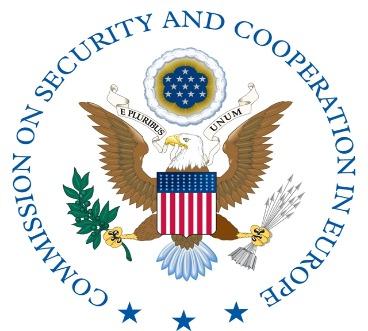By Annie Lentz,
Max Kampelman Fellow
The Soviet-Afghan War, which lasted for more than nine years, began with the December 1979 invasion following a Soviet-orchestrated coup and the subsequent appointment of Soviet loyalist Babrak Karmal as president of a communist Afghan government. The coup was a direct violation of international law and global norms as Afghanistan was—and remains—a sovereign and independent nation.
In June 1981, two Mujahideen insurgent coalitions—one moderate, one fundamentalist—formed to combat Soviet influence over the Democratic Republic of Afghanistan. These new groups contributed to an increase in organized, effective guerilla attacks against Soviet forces, leading to the eventual Soviet withdrawal from the country following their failure to quell the Mujahideen insurgency.
Four years earlier, the Soviet Union signed a collection of international agreements—including the Helsinki Final Act—committing to respect the rights of sovereign nations. By signing the Helsinki Final Act, the Soviet Union and 34 other countries pledged to refrain from exercising the threat or use of force, to observe the rights of peoples to self-determination, and to accept international principles of conduct, all commitments that the Soviet Union violated by invading Afghanistan.
On July 22, 1981, during the early stages of the Soviet-Afghan war and shortly after the mobilization of the new Mujahideen coalitions, the U.S. Helsinki Commission held a hearing, “Soviet Violation of Helsinki Final Act: Invasion of Afghanistan,” to examine how the Soviet invasion of Afghanistan was not only a violation of international law but also of the terms of the Helsinki Final Act.
Then-Chairman Rep. Dante Fascell chaired the hearing, saying, “The Soviet invasion has clearly undermined the spirit and intentions of the principles embodied in the Final Act. Most importantly the invasion of this formerly independent state has severely damaged the international climate and has done great harm to East-West relations.”
Rep. Don Bonker, then-Chairman of the House Subcommittee on Human Rights and International Organizations, noted, “There is hardly a single international agreement, treaty, rule of law, custom or civilized behavior that the Soviets have not violated during their bloody occupation and suppression of the Afghan population.” He went on to urge the Reagan administration to use U.S. allies to convince the Soviets that an independent Afghanistan was in the best interest of all parties.
Prior to the Helsinki Commission hearing, the international community’s response to the Soviet Union had been growing more severe. On top of escalating sanctions and embargoes which exasperated tensions from the Cold War, in 1980, the U.S. led a boycott of the Summer Olympics hosted in Moscow. In 1984, the Soviet Union did the same to the Summer Olympics in Los Angeles. The retaliatory actions continued through the end of the war, deepening the strain between the U.S. and the Soviet Union.
Despite the signing of the Geneva Accords (1988), an international agreement aimed to resolve the situation in Afghanistan, the Mujahideen refused to accept the terms and continued fighting until Soviet forces (or the Soviet military) withdrew in 1989. The conflict resulted in upwards of two million civilian casualties and forced 5.5 million Afghans to flee as refugees. The failure of Soviet forces to win the war or quell the Mujahideen insurgency is thought to have contributed to the collapse of the Soviet Union. The failure to win the Cold War proxy battle having an extensive impact on Soviet politics and the perceived legitimacy of the Soviet government.
The Soviet-Afghan War left the Afghan government in ruins. It would take years for significant progress to be made, and even then, the deteriorated state of the government and the economy left the country susceptible to extremist groups. In 1999 the United Nations Security Council adopted Resolution 1267 to combat terrorist entities in the country, including the Taliban, which can trace its origins to the aftermath of the Soviet-Afghan War. Unfortunately, the UN’s efforts proved insufficient, allowing for the rise of Al-Qaeda and other extremist groups.
For the past few decades, the Helsinki Commission has worked closely to promote human rights and security in Afghanistan, holding hearings to support the country’s progress and recovery. The Commission has also worked to ensure the U.S. upholds its own international commitments.
The Russian Government remembers the conflict differently. The Kremlin is using the 30th anniversary of Soviet troop withdraw for political gains, passing legislation this year to subsequently justify the conflict. Such legislation continues Vladimir Putin’s trend of historical revisionism and deepens the divide between the Kremlin’s political narrative and history.







